The importance of scalp care: Tips for maintaining a healthy scalp
Introduction
A. Your Scalp Matters: Why Caring for Your Scalp is Essential for Healthy Hair
Your scalp is the foundation for healthy hair. Caring for your scalp is just as important as caring for the hair itself. Neglecting your scalp can lead to a host of problems, including dandruff, dryness, and even hair loss. By taking care of your scalp, you can prevent these issues and promote healthy hair growth.
B. Who Needs Scalp Care? Understanding the Concerns and Desires of Our Audience
Everyone can benefit from scalp care, regardless of hair type or ethnicity. Whether you have curly, straight, thick, or fine hair, a healthy scalp is key to promoting healthy hair growth. Our audience is made up of people who want to maintain a healthy scalp and achieve luscious, vibrant hair.
C. What You'll Learn: A Comprehensive Guide to Maintaining a Healthy Scalp
In this comprehensive guide, we'll cover everything you need to know about scalp care. We'll start with the basics of understanding your scalp, including what it is, what it does, and how it works. Then, we'll dive into tips for maintaining a healthy scalp, including proper hair washing techniques, the role of nutrition in scalp health, the power of touch through scalp massage and exercise, and common scalp irritants to avoid. We'll also cover natural remedies for scalp care, such as essential oils and DIY scalp treatments, as well as professional scalp treatments and their benefits. Finally, we'll recap why taking care of your scalp is so important and provide some final tips and recommendations for maintaining a healthy scalp.
II. Understanding Your Scalp
A. Your Scalp 101: What It Is, What It Does, and How It Works
Your scalp is the skin on top of your head that contains hair follicles. It's made up of four layers: the epidermis, dermis, subcutaneous tissue, and muscle. The scalp plays a vital role in protecting your head from external damage and regulating body temperature. Hair growth is also dependent on a healthy scalp.
B. Why a Healthy Scalp is Key to Healthy Hair Growth
A healthy scalp provides the foundation for healthy hair growth. If your scalp is dry, inflamed, or infected, it can impact hair growth and even cause hair loss. By keeping your scalp healthy, you can ensure optimal conditions for hair growth.
C. Common Scalp Issues and What Causes Them
Common scalp issues include dandruff, dryness, itching, and hair loss. These issues can be caused by a variety of factors, including genetics, diet, stress, hormonal changes, and certain hair products. Identifying the cause of your scalp issues is key to finding the right treatment.
III. Tips for Maintaining a Healthy Scalp
A. Proper Hair Washing Techniques: How to Get the Most Out of Your Shampoo and Conditioner
Proper hair washing techniques are key to maintaining a healthy scalp. Choose the right shampoo and conditioner for your hair type and concerns, and wash your hair regularly to prevent buildup. When washing your hair, be sure to massage your scalp to promote blood flow and remove dead skin cells.
B. Eat Your Way to a Healthier Scalp: The Role of Nutrition in Scalp Health
Your diet plays a crucial role in scalp health. Eating a balanced diet rich in nutrients like vitamin A, B, C, and D, and omega-3 fatty acids can promote healthy hair growth and prevent scalp issues.
C. The Power of Touch: Scalp Massage and Exercise for a Healthier Scalp
Scalp massage and exercise can help promote blood flow to the scalp, which can stimulate hair growth and prevent scalp issues. To perform a scalp massage, use your fingertips to gently massage your scalp in circular motions, working your way from the front to the back of your head. You can also use a scalp massaging tool, such as a scalp brush or a vibrating massager, to enhance the massage experience.
Scalp exercises, on the other hand, involve gentle movements that help stretch and stimulate the scalp muscles. These exercises can improve blood flow, reduce tension, and promote hair growth. One simple exercise you can try is to tilt your head forward and gently tap your scalp with your fingertips for a few minutes.
When incorporating scalp massage and exercise into your scalp care routine, it's important to be consistent and patient. You may not see immediate results, but over time, these practices can have a significant impact on your scalp health and hair growth.
D. What to Avoid: Common Scalp Irritants That Can Sabotage Your Scalp Health
Certain hair treatments, styling tools, and hairstyles can cause damage and irritation to the scalp, leading to hair loss and other scalp issues. Chemical hair treatments, such as coloring and perming, can weaken and dry out the hair, causing it to break and fall out. Heat styling tools, such as flat irons and curling wands, can damage the hair shaft and dry out the scalp.
In addition to these treatments, certain hairstyles can also contribute to scalp irritation and hair loss. Tight hairstyles, such as braids and ponytails, can pull on the hair and cause traction alopecia. Hair accessories, such as hair ties and clips, can also cause damage and breakage if not used properly.
To maintain a healthy scalp, it's important to avoid these common scalp irritants and opt for gentler hair treatments and styles. Consider using natural hair dyes and avoiding heat styling tools as much as possible. When choosing hairstyles, opt for looser styles that don't pull on the hair and avoid wearing hair accessories for long periods of time.
IV. Natural Remedies for Scalp Care
A. Essential Oils for a Healthy Scalp: Natural Solutions for Common Scalp Issues
Essential oils are highly concentrated plant extracts that can offer a variety of benefits for the scalp and hair. Some essential oils have anti-inflammatory and anti-microbial properties, which can help soothe and heal the scalp. Others can stimulate hair growth and improve scalp circulation.
Popular essential oils for scalp health include tea tree oil, peppermint oil, and lavender oil. Tea tree oil is known for its anti-inflammatory and anti-microbial properties and can help soothe an itchy or irritated scalp. Peppermint oil can help improve scalp circulation and promote hair growth, while lavender oil has a calming effect and can help reduce stress and tension in the scalp.
To use essential oils for scalp care, dilute a few drops of the oil in a carrier oil, such as coconut or jojoba oil, and massage the mixture into your scalp. You can also add a few drops of the oil to your shampoo or conditioner for added benefits.
B. DIY Scalp Treatments: Simple and Effective Solutions You Can Make at Home
If you're looking for a natural and affordable way to care for your scalp, try making your own DIY scalp treatments at home. These treatments can be made using simple ingredients, such as apple cider vinegar, honey, and aloe vera, and can help soothe and nourish your scalp.
One popular DIY scalp treatment is an apple cider vinegar rinse, which can help remove buildup and restore the pH balance of the scalp. To make this rinse, mix equal parts apple cider vinegar and water and pour the mixture over your hair and scalp. Let it sit for a few minutes before rinsing it out with cool water.
Another effective DIY scalp treatment is a honey and aloe vera mask, which can be made with just two simple ingredients. Honey is known for its antibacterial properties and can help soothe an irritated scalp, while aloe vera has a cooling effect and can help moisturize the scalp.
To make this mask, simply mix equal parts honey and aloe vera gel in a bowl. Apply the mixture to your scalp and massage gently for a few minutes. Leave the mask on for 30 minutes to an hour, then rinse it off with warm water and shampoo as usual.
V. Professional Scalp Treatments
If you're looking for more targeted and advanced scalp care, professional scalp treatments may be the right choice for you. Here are some of the most popular types of professional scalp treatments:
A. Types of Professional Scalp Treatments: From Exfoliation to Hydration
- Scalp Exfoliation Treatments
Scalp exfoliation treatments help remove buildup, dead skin cells, and excess oil from the scalp, which can clog hair follicles and cause scalp irritation. Some common types of scalp exfoliation treatments include:
- Scalp scrubs: These are typically made with physical exfoliants like salt or sugar and can be massaged into the scalp to remove buildup.
- Chemical exfoliants: These use acids like salicylic acid or glycolic acid to gently dissolve buildup on the scalp.
2. Scalp Rejuvenation and Hydration Treatments
Scalp rejuvenation and hydration treatments are designed to nourish and hydrate the scalp, which can help improve hair growth and prevent scalp issues. Some popular types of scalp rejuvenation and hydration treatments include:
- Scalp masks: These are usually made with nourishing ingredients like avocado, coconut oil, or jojoba oil and can be applied directly to the scalp to provide hydration.
- Scalp serums: These are typically lightweight and contain ingredients like hyaluronic acid, which can help hydrate the scalp without leaving it feeling greasy.
B. The Benefits of Professional Scalp Treatments: Why You Should Consider Seeing a Professional
- Improved Scalp Health and Hair Growth
Professional scalp treatments are typically more targeted and powerful than at-home remedies, which means they can help improve scalp health and hair growth more quickly and effectively. Whether you're dealing with a specific scalp issue like dandruff or hair loss, or you just want to give your scalp a deep cleanse and hydration boost, a professional scalp treatment can help.
2. Expert Advice and Recommendations
When you see a professional for a scalp treatment, you'll often receive personalized recommendations and advice based on your specific hair and scalp needs. A professional can help you identify the root cause of any scalp issues you're experiencing and provide tailored advice on how to improve your scalp health and hair growth.
VI. Conclusion
A. Your Scalp Care Recap: Why Taking Care of Your Scalp Matters for Healthy Hair
Maintaining a healthy scalp is key to achieving healthy and beautiful hair. By understanding the basic anatomy and functions of the scalp, and identifying common scalp issues and their causes, you can take steps to maintain optimal scalp health. From proper hair washing techniques to nutrition and lifestyle choices, there are many ways to care for your scalp at home. Additionally, natural remedies and professional scalp treatments can provide targeted solutions for specific scalp concerns.
B. Final Tips and Recommendations for Maintaining a Healthy Scalp
To maintain a healthy scalp, it's important to choose hair care products that are tailored to your hair type and concerns. Be sure to wash your hair regularly and properly, and avoid common irritants such as chemical treatments and heat styling tools. Incorporating scalp massage and exercise into your routine can also be beneficial. Eating a balanced diet that is rich in key nutrients and vitamins can also help support scalp health and hair growth.
C. Our Commitment to Scalp Care: While we may not sell scalp care products or offer professional scalp treatments or advice, we are committed to providing valuable information to help you maintain a healthy scalp. We believe that by empowering our audience with knowledge and understanding about scalp care, we can help them achieve healthier, more beautiful hair.


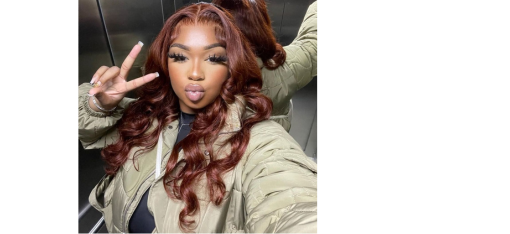
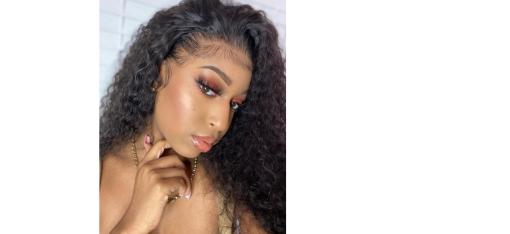

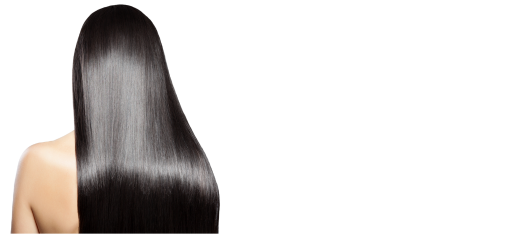
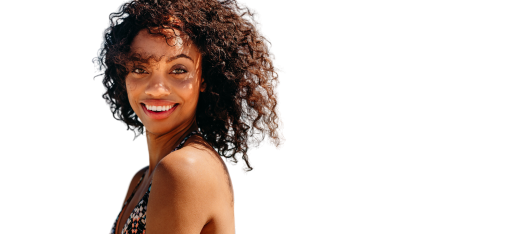
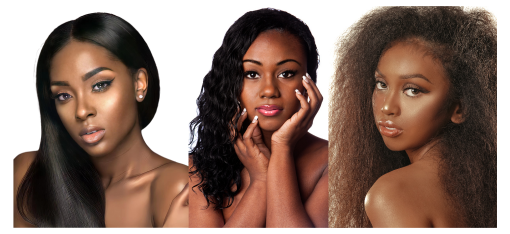




Leave a comment